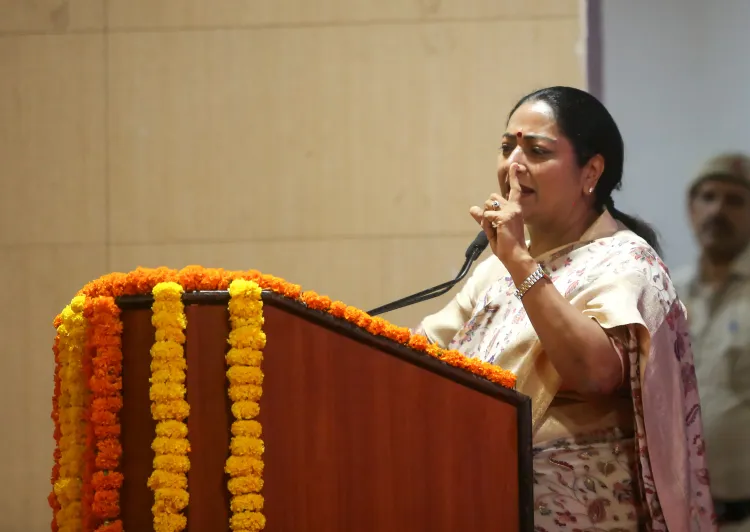Is a 7-Year Delay in Starting the Biogas Plant Proof of Kejriwal’s Failures?

Synopsis
Key Takeaways
- Biogas plant inaugurated after 7-year delay.
- Project aimed at converting cow dung into energy.
- Will prevent waste from entering the Yamuna River.
- 200 tonnes of waste processed daily.
- 30 tonnes of compost produced for farmers.
New Delhi, Sep 20 (NationPress) Delhi Chief Minister Rekha Gupta has criticized former Chief Minister and AAP National Convenor Arvind Kejriwal for obstructing Centre-funded initiatives in the city over the last decade. She pointed out that a biogas plant inaugurated on Saturday in West Delhi had been stalled since 2018.
"Today, I proudly inaugurated the national Capital's first large-scale compressed biogas plant of the MCD at Nangli Dairy. Kejriwal has consistently failed to implement development projects financed by the PM Narendra Modi administration. At times, he would claim he couldn't sign the file, while other times he would assert he wasn't granted a free hand," she stated.
"The era of governance excuses has concluded with the establishment of this plant, which will transform cow dung into energy and prevent waste from entering the Yamuna River," the Chief Minister added.
She noted that construction on the biogas plant began in 2018 but was never finalized during the AAP regime.
"Following the BJP's rise to power, the project was promptly completed in 2025 and handed over to the MCD. Whenever inquiries arose regarding the delay, Kejriwal would attribute it to Modi's interference. However, the reality is that they lacked the motivation to progress," she asserted.
Describing the new plant as a dream project of PM Modi, she mentioned that the city produces 2,500 tonnes of cow dung daily, with plans to establish similar biogas plants across all 11 districts.
She claimed that the previous Congress and AAP governments neglected dairy colonies and the requirements of their owners.
She detailed that the Nangli Dairy plant will process 200 tonnes of waste or cow dung daily, generating 5,600 kg of gas for distribution to Indraprastha Gas Limited through an existing pipeline agreement. Additionally, it will produce 30 tonnes of compost each day, which will be given to farmers.







